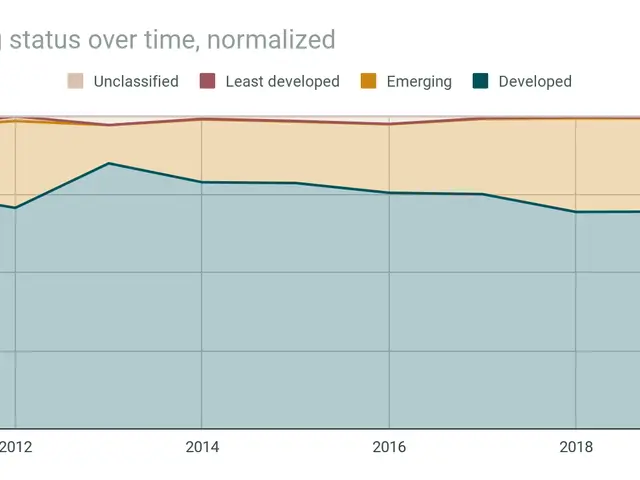Hugo Boss Experiencing Financial Losses Due to Uninformed Customers
Swinging the Pendulum:
It seems the fashion world is taking a turn for the less extravagant, and some big-name brands are feeling the strain.
According to Retail Detail, our favorite clothing brands are blaming the dip in sales on a global slump in spirits. CEO of the brand, Daniel Grider, has made it clear that our sputtering economy is out of his control. Instead, he's opting for a more proactive approach:
Strategic process optimization;Agile marketing;Exciting new partnerships.
Take their potential collaboration with David Beckham, for instance. Sounds promising, doesn’t it?
Internet users have taken to social media to poke fun at this explanation, stating that consumers are simply tired of big brands exploiting their wallets. Instead, folks are gravitating towards affordable, comfortable, and stylish options.
The makers of the iconic Barbie doll are also not immune to this shift in consumer behavior.
In today's marketplace, luxury no longer just equates to pricey, shiny baubles; today's consumers are seeking out brands that offer emotional resonance, quality craftsmanship, or cultural relevance over mere exclusivity. Established powerhouses like Miu Miu and Prada are thriving by connecting with customers on a deeper level.
U.S. interest in popular luxury brands like Louis Vuitton, Gucci, and Dior has plummeted, according to recent data. This decline marks the end of a luxury boom, where high-end goods were all the rage in 2024.
Millennials and Gen Z are driving a new trend in purchasing habits, known as "The Luxe Redefined." These consumers prioritize experiences, personal identity, and brand connections over traditional status symbols. They seek luxury goods that reflect their values and beliefs, aligning with their desire for personal growth and cultural expression.
To connect with younger, more socially conscious consumers, luxury brands need to adapt by emphasizing digital engagement, authentic storytelling, and sustainable business practices. Brands must learn to appeal to consumers who care less about monetary symbols and more about the stories behind the brands they choose to support.
- The TV advertising breaks feature a humorous skit with irony, showcasing a doll dressed in high-end fashion-and-beauty brands, while the voiceover discusses the economic downturn in the finance industry and its impact on the lifestyle of ordinary people.
- Amidst this shift in consumer behavior, Grider's brand is also looking to partner with big names in fashion-and-beauty, such as David Beckham, as a part of their strategic processes aimed at revitalizing the brand and appealing to the younger, socially conscious market.
- In contrast, traditional luxury brands like Louis Vuitton, Gucci, and Dior have seen a decline, with fewer consumers interested in their high-priced goods, mirroring the global slump in spirits mentioned in the fashion world.
- Ironically, the drop in sales for luxury brands can be attributed to their target audience, millennials and Gen Z, who prioritize affordability, comfort, and cultural relevance over exclusivity, signifying a new trend in purchasing habits known as "The Luxe Redefined."
- Instead of television advertisements, these newer consumers prefer digital engagement with fashion-and-beauty brands that prioritize authentic storytelling, sustainability, and promoting a lifestyle that resonates with their values and beliefs.




